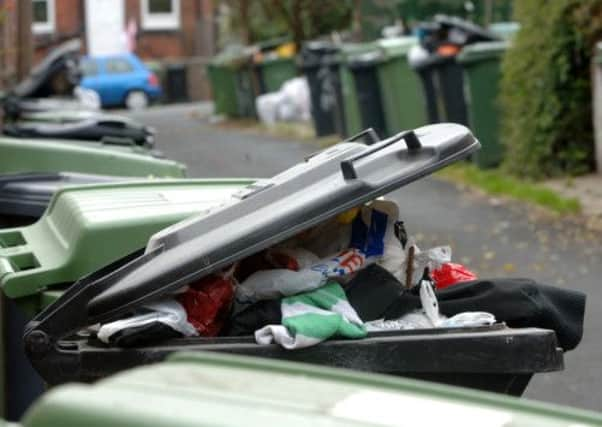Council misses 1,000 fortnightly bin collections


Figures obtained by the Yorkshire Post show there were 1,097 missed collections since the switch on May 14, compared with 614 in the three weeks leading up to it.
Hull Council said it had missed 420 “genuine collections” since May 14, but a further 677 were missed because the bins had been put out on the wrong day.
Advertisement
Hide AdAdvertisement
Hide AdIt said of the 614 missed collections leading up to the change, 544 were a result of council errors, and just 70 were because the bins had not been put out.
The authority said the 1,097 missed collections since May 14 represented only a fraction - 0.0016 per cent - of the 733,000 total collections.
But it received 28 complaints about bin collections in the three weeks since the changes, compared with none in the corresponding period before.
Further changes to the service will come into effect on Saturday when the council will stop collecting extra bags of “side waste” placed next to bins, which have been collected since May 14 to help residents adjust.
Advertisement
Hide AdAdvertisement
Hide AdIt will, however, continue to collect recyclable materials placed next to the blue recycling bins. An extra 5,000 recycling bins have been delivered since April 1.
Blue and brown recycling bins are already collected fortnightly.
The changes, which were partly driven by an increase in recycling rates, will save the council about £1m a year.
They also saw the loss of 24 jobs through voluntary redundancy, bin collectors switching to a four-day week, and the end of Monday collections.
Advertisement
Hide AdAdvertisement
Hide AdThe council has written to residents informing them of the changes.
It said more than 70 per cent of the 22,000 people who responded to a survey last year were in favour of fortnightly or monthly waste collections.
Adam McArthur, assistant head of service for waste, cleansing, grounds and parks, said: “Although the figure has increased for missed collections following the introduction of fortnightly collections, out a total of 733,000 collections completed, collectively the missed collections equate to 0.0016 per cent, which we are happy with.
“We returned the next day to ensure the missed bins were emptied.
Advertisement
Hide AdAdvertisement
Hide Ad“The decision to move to fortnightly collections followed a consultation exercise that took place last year and 70 per cent of residents who replied favoured a move to either fortnightly or monthly waste collections.
“In addition to this, the council is set to save £1m a year as well as increasing the recycling rate across the city and protecting the local environment.”
He added: “I want to thank our residents in Hull who last year helped us to save £2.5m in landfill tax by recycling 50 per cent of their waste, making us a top performing urban council, however we are not complacent and want to continue to increase our recycling rate to over 60 per cent.”
East Riding Council began rolling out fortnightly bin collections in March and expects to have completed this by the end of the year.
Advertisement
Hide AdAdvertisement
Hide AdThis followed a series of successful trials across 20,000 households in the borough that have seen recycling rates reach between 60 and 70 per cent, and the amount of waste being sent to landfill via the green bins being cut by more than 30 per cent.
The East Riding authority said it was responding to residents’ appeals for more blue bin recycling capacity, which resulted in a corresponding drop in the amount of waste being left for landfill.
A report showed the changes would bring potential annual savings of more than £1.2m, including £775,000 in waste collection savings and the avoidance of £468,000 in landfill tax, which is charged per tonne.
The council said it expected to make a one-off payment of about £300,000 for new bins and caddies, while also spending just under £2m on 12 new waste disposal vehicles.